
Overworked Employee Realizes He’s Irreplaceable To The Company, Makes The Best Out Of The Situation
Reddit user u/Dcwiker05 was doing a good job at a trucking company so his boss decided to award the employee… with more work.
When the Redditor’s department was understaffed, the managers thought they could simply pile up all the work on his shoulders and whenever u/Dcwiker05 tried to communicate that he wasn’t comfortable with working 90 to 110-hour weeks, they would repeat the same corporate mantra: “Do the job you were hired to do.”
So he did. One day, he clocked in at 7 am and left at 3 pm—the exact time that was agreed upon his hire.
The higher-ups immediately realized that u/Dcwiker05 was irreplaceable to the business.
Overworking isn’t something exclusive to Silicon Valley or Wall Street; people hustle long hours all over the world
Image credits: WOIMSweb (not the actual photo)
But there’s only so much you can take
Image credits: Dcwiker05
Sadly, this story isn’t a standalone case. The statistics on burnout are grim: a global study from the World Health Organization (WHO) found that in 2016, 488 million people were exposed to long working hours, with more than 745,000 people dying that year from stroke and heart disease as a result of overworking. According to a 2019 report published by People’s Policy Project in collaboration with The Gravel Institute, in one year, the average American works more hours than people in any peer nation. Also, the WHO study said that overwork is the single largest risk factor for occupational disease and has significant impacts on physical and mental health.
“No job is worth the risk of stroke or heart disease,” WHO Director-General Dr. Tedros Adhanom Ghebreyesus said, urging governments, businesses, and workers to find ways to protect workers’ health.
“Between 2000 and 2016, the number of deaths from heart disease due to working long hours increased by 42%, and from stroke by 19%,” the WHO said as it announced the above-mentioned study, which it conducted with the International Labour Organization and call the first of its kind.
The study doesn’t cover the period when the pandemic thrust national economies into crisis and reshaped how millions of people work. But its authors explained that overwork has been on the rise for years due to phenomena such as the gig economy and remote work.
“[Working from home] has become the norm in many industries, often blurring the boundaries between [the two],” Ghebreyesus said. “In addition, many businesses have been forced to scale back or shut down operations to save money, and people who are still on the payroll end up working longer hours.”
Just like in our story! Let’s hope more of us are willing to stand up for ourselves.
People were glad that everything turned out the way it did
My partner was hired to do a specific job with specific tasks at an engineering firm and then they kept piling on more and more tasks that were never mentioned in the job interview. Eventually he fell so far behind they fired him and it felt more like a relief than a problem. I don't know if they ever found an employee who could do all the stuff they expected him to do, but I doubt it. They finished the project a year behind schedule and way over budget, then went bankrupt.
I remember reading about someone who was hired to be a cashier at a pharmacy. Then they asked OP to work the cosmetics counter, *in addition* to their regular cashiering duties. Long story short, through a series of employees quitting or getting fired, OP's boss basically expected them to do the work of five people. When OP asked when their raise would appear on their paycheck, the bosses seemed surprised. When OP pointed out that they were doing the work of five people, so they should get *some* kind of pay differential, they offered OP such a pittance of a "raise" that OP also ended up quitting. Within a year, that location was closed, and Corporate couldn't understand why. Imagine that...
Load More Replies...Don't know if all the details are all true or not but it's called the Whore Paradox. The better someone does their job, the more they get screwd.
EXACTLY! It allows other people to skate and all the work that isn't done right is offloaded to the people who do their work well. It's such BS. Really a recipe for absolute toxicity.
Load More Replies...People will take advantage of you if you let them. Don’t expect management to realize until it’s happening what value you bring to the equation because they never do unless it effects their job. They should of just had you choose the person in the first place since you obviously were qualified and knew the job and what it took to do better then anyone else. Im also glad you told them what’s what. They deserved to learn an expensive lesson.
My partner was hired to do a specific job with specific tasks at an engineering firm and then they kept piling on more and more tasks that were never mentioned in the job interview. Eventually he fell so far behind they fired him and it felt more like a relief than a problem. I don't know if they ever found an employee who could do all the stuff they expected him to do, but I doubt it. They finished the project a year behind schedule and way over budget, then went bankrupt.
I remember reading about someone who was hired to be a cashier at a pharmacy. Then they asked OP to work the cosmetics counter, *in addition* to their regular cashiering duties. Long story short, through a series of employees quitting or getting fired, OP's boss basically expected them to do the work of five people. When OP asked when their raise would appear on their paycheck, the bosses seemed surprised. When OP pointed out that they were doing the work of five people, so they should get *some* kind of pay differential, they offered OP such a pittance of a "raise" that OP also ended up quitting. Within a year, that location was closed, and Corporate couldn't understand why. Imagine that...
Load More Replies...Don't know if all the details are all true or not but it's called the Whore Paradox. The better someone does their job, the more they get screwd.
EXACTLY! It allows other people to skate and all the work that isn't done right is offloaded to the people who do their work well. It's such BS. Really a recipe for absolute toxicity.
Load More Replies...People will take advantage of you if you let them. Don’t expect management to realize until it’s happening what value you bring to the equation because they never do unless it effects their job. They should of just had you choose the person in the first place since you obviously were qualified and knew the job and what it took to do better then anyone else. Im also glad you told them what’s what. They deserved to learn an expensive lesson.


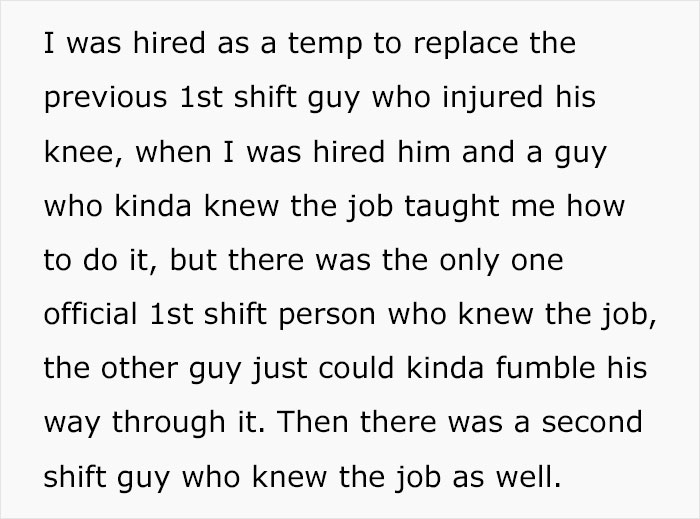
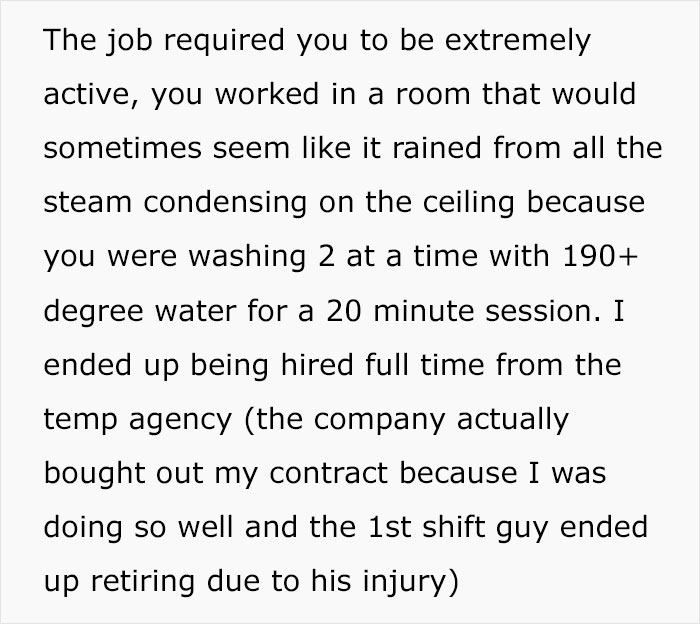
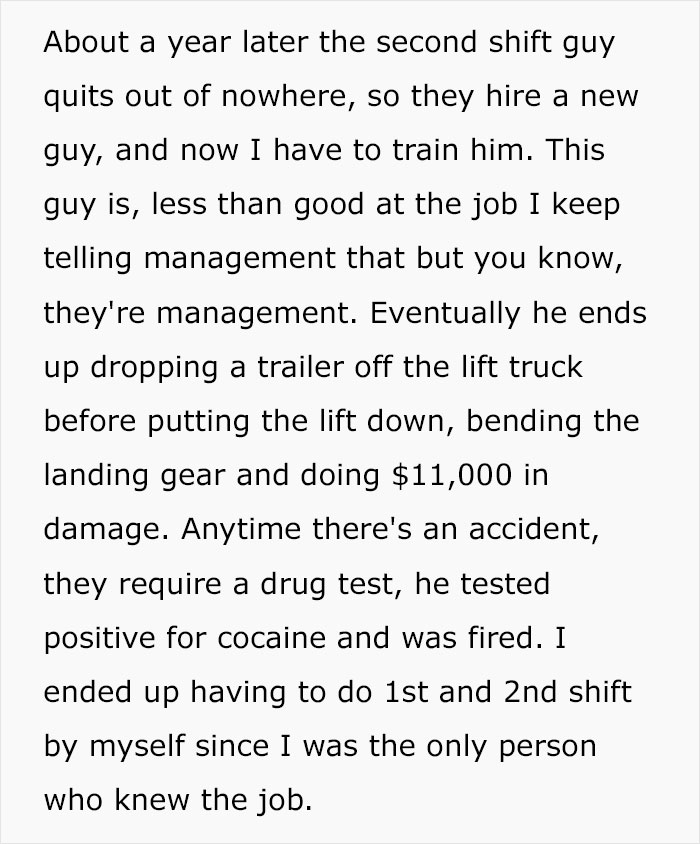
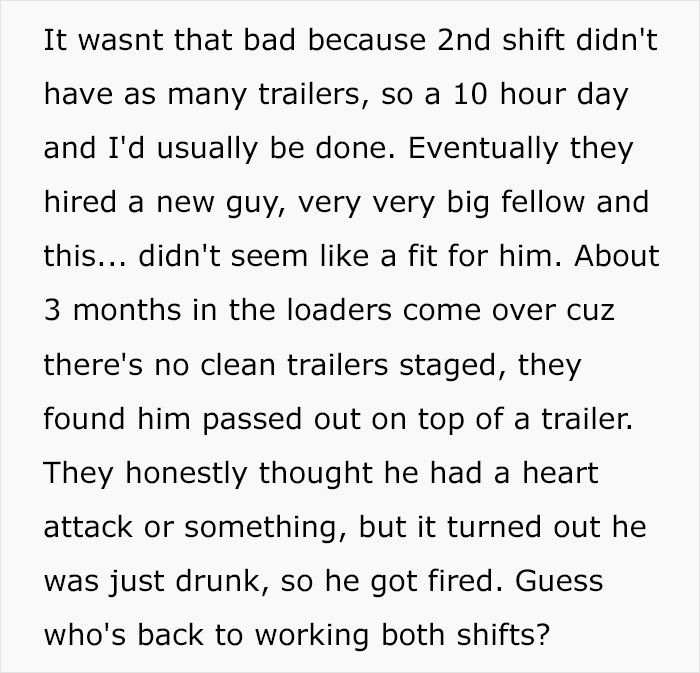

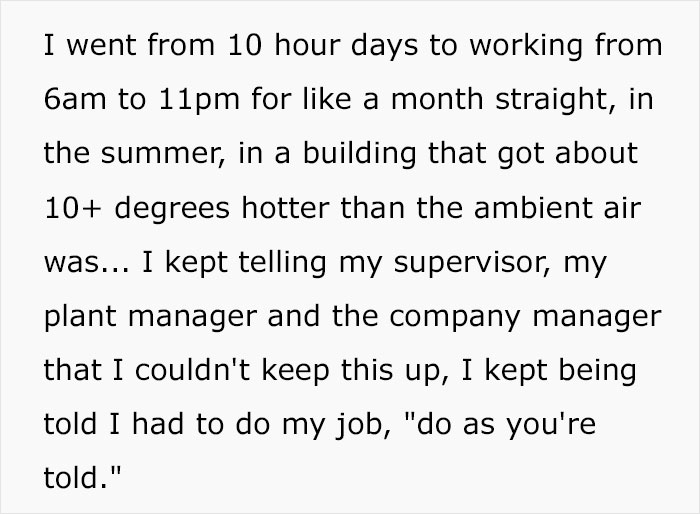

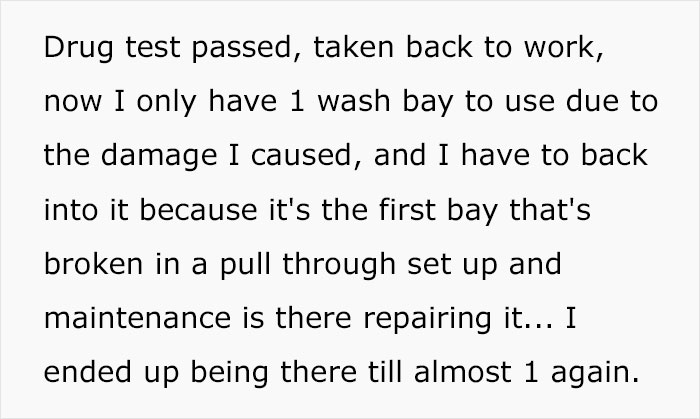
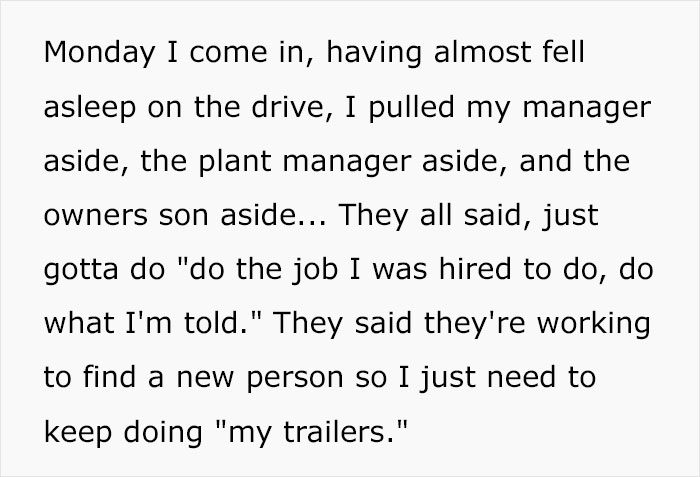
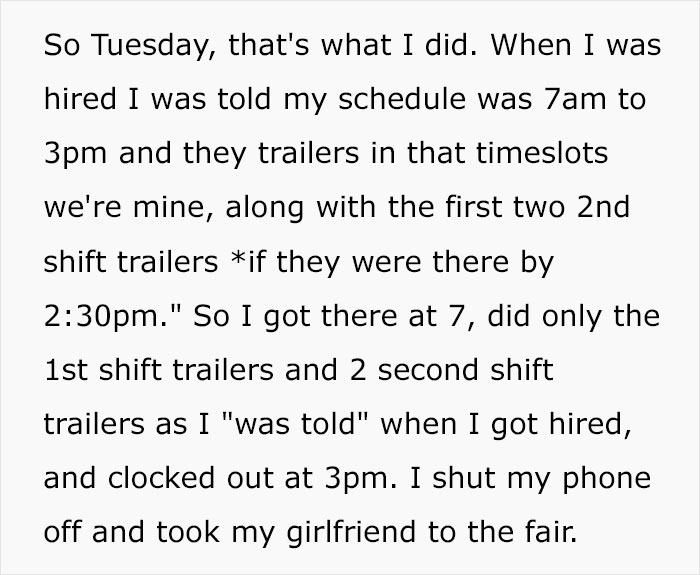
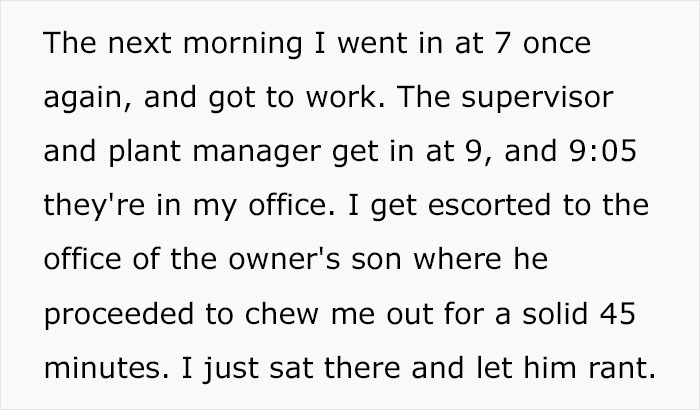
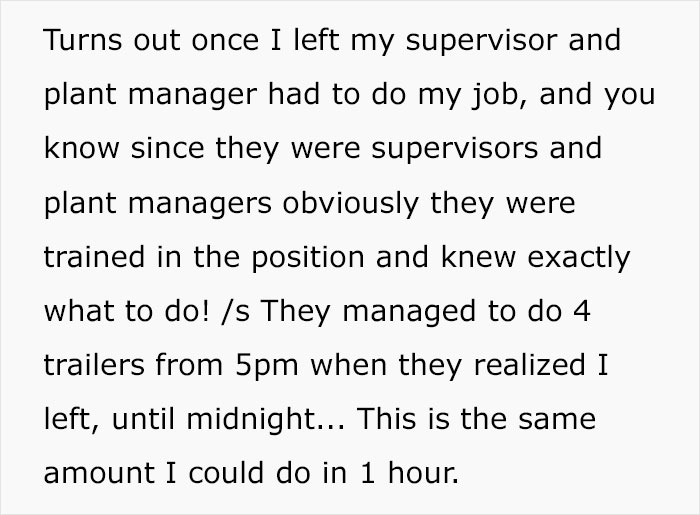
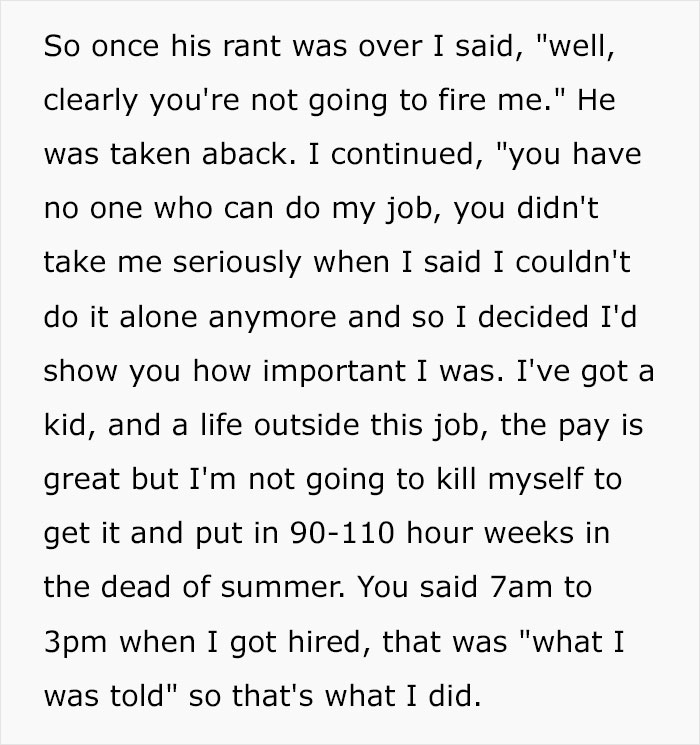
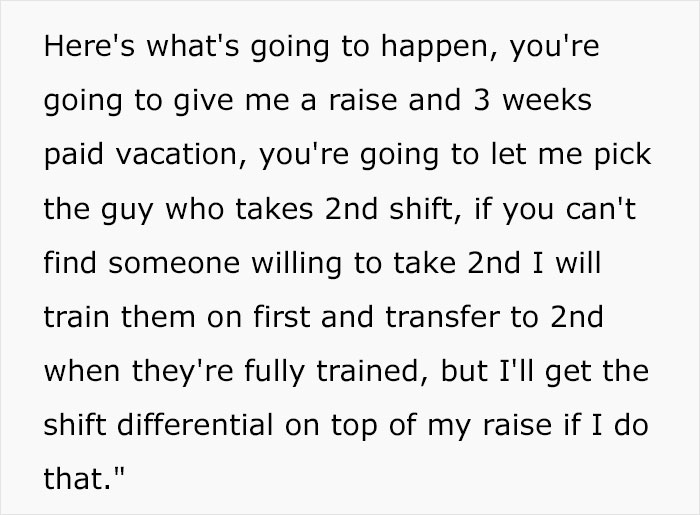

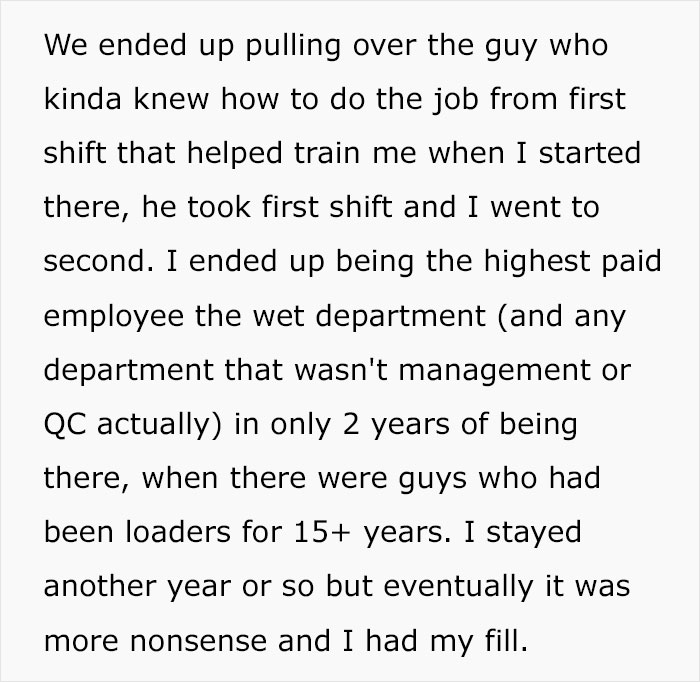



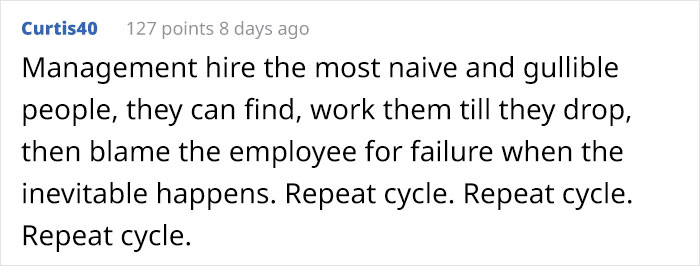
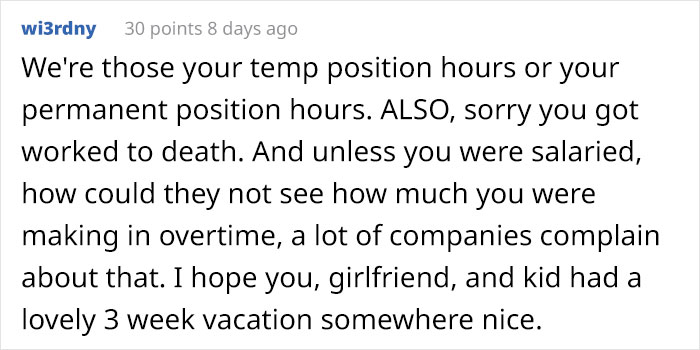
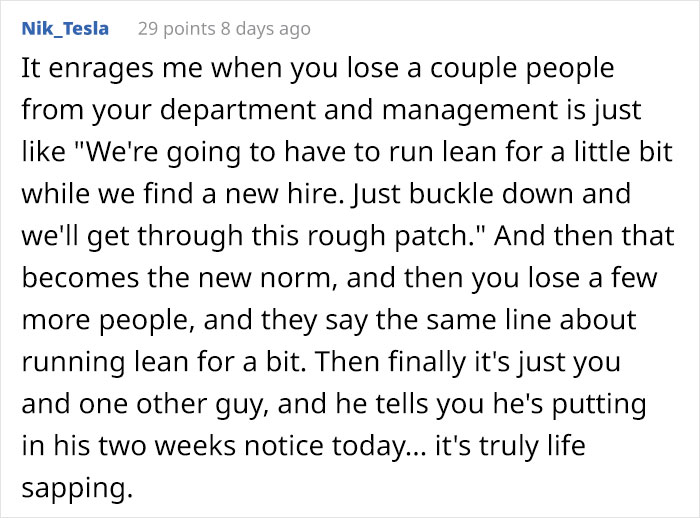








153
43